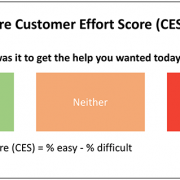Artificial Intelligence versus Natural Stupidity, who will win the race?
“Two things are infinite: human stupidity and the universe; and I’m not really sure about the latter.”
Albert Einstein
Adding fuel to the fire, I add natural (human) stupidity to the burning debate about whether artificial intelligence (AI) represents a real existential threat to humanity. On the other hand, human stupidity seems, at least in many ways, more dangerous than AI. Being aware of the enormous ethical, social and educational challenges that we must face in the face of the rampant advance of AI, I consider the lack of human wisdom and judgment to be the causes that often trigger more serious and lasting negative consequences.
AI is a human creation. Its operation is based on data, algorithms and programming, without its own purpose or malicious intentions. AI remains a tool that, at least for the moment, depends on human direction and supervision. While there are legitimate concerns about its ability to automate jobs and skew data, AI does not inherently possess wicked motivations.
Human stupidity, in contrast, has been responsible for countless tragedies throughout history. Errors in judgment, prejudice, fanaticism, ignorance and petty interests have led us to armed conflicts, environmental disasters, discrimination and endless social problems. The eventual lack of critical thinking and sympathy has led countless times to unnecessary suffering on a massive scale.
A crucial aspect of the debate must be sustained in the ethical dimension. Although there are ethical dilemmas to resolve around its use, AI can be designed to operate ethically and comply with established regulations. La estupidez, por otro lado, habitualmente elude todo marco ético, lo cual resulta en acciones perjudiciales sin la debida consideración de las consecuencias.
We often wonder if AI will be able to achieve a level of consciousness comparable to the one of human beings; finding the biggest obstacle to this approach in that there is no scientific consensus about what consciousness is. Although we can affirm that AI will not try to emulate human unconsciousness, which repeatedly leads us to ignore valuable lessons or repeat the same mistakes.
I definitely conclude that natural stupidity is much more dangerous than artificial intelligence, given its obvious capacity to cause large-scale damage. While AI poses significant challenges, its potential danger lies largely in the hands of humans. Stupidity, on the other hand, is an inherent and ubiquitous problem that requires constant effort to be mitigated through education, empathy, and rational decision making.
Gerardo Andreucci
CEO TecnoVoz S.A.
Source dbiz.today







